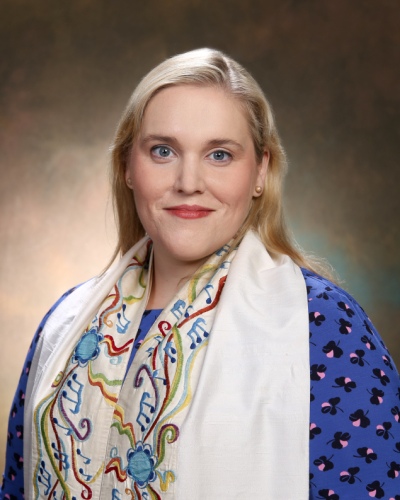Matthew and I arrived to Charlotte in May 2003. The previous February, Matt was offered a job at Bank of America, which he wanted to pursue. I had already taken my GREs and begun an application process to the Reform movement’s seminary, Hebrew Union College – Jewish Institute of Religion. Without much of a second thought, I agreed to put my HUC application on hold and move. We drove to our Uptown apartment straight from my college graduation. I felt like we were pioneers, embarking on a journey to an entirely new world with new cultural norms and places to explore.
There have been times when I look back on the initial decision to move to Charlotte and reflected on how risky that decision was. How could I put my graduate work and career on hold and move to another state? What does a person with a BA in History and Jewish Studies do in North Carolina? Would I be putting my dreams and plans on hold? In retrospect, it seems like this should have been a complicated decision, but I chose to move to Charlotte and never looked back.
What unfolded for me the summer I arrived here was nothing short of life-altering. The staff of Temple Beth El welcomed me with open arms and took me under their wings. I had opportunities for work, for learning, and for community. From 2003-2006, I learned what a vibrant Jewish community could look like. I remember tiny details of people and places, and how hard I worked to grow into the responsibilities that were entrusted to me. Most of all, I remember the generosity of Cantor Bernard, Susan Jacobs, Rabbi Schindler, and countless others.
After three years in Charlotte, Matt and I moved to New York so I could pursue my MA and Cantorial Ordination at HUC. In 2011, I rejoined the staff of TBE, now as cantor. The twelve years since we have been profoundly rewarding and enriching. I have immense gratitude for the privilege of walking beside members of our community through the greatest joys and sorrows, on the ordinary days and at their peak experiences, and in those moments when people have shared that they, too have recognized something in their own life to be b’sheret.
Our move to Charlotte was the first time in my life that ever felt truly b’sheret – meant to be. I could never have anticipated the opportunities that I found here. Growing up in a small, urban New Jersey Jewish community, I had no real sense of the large suburban synagogue or even really what a cantor did, only that I was sure I wanted to be one. By the time I began my graduate seminary work at HUC in the summer of 2006, I was not sure how I could have been successful at HUC without the experience and education I had gained in Charlotte. It was clear to me then as it is now that the three-year detour to Charlotte was always meant to be a part of my journey.
In the years since, I have made many decisions that were far less straightforward than the initial decision to move to Charlotte. Life seems to become more complex as we go on living and, thus, our decisions are tougher because they now account for the nuance that our experience has introduced into our understanding. I think this is how life transforms our personal torah and informs the seeds of the wisdom that emerges as we age.
I have sometimes longed for the simplicity of the decision to move to Charlotte. The decision to move on from my role as Cantor of Temple Beth El was certainly one of the hardest that I have ever made. And yet, once that choice finally became clear, I had an overwhelming sense of peace that it was the correct step and, once again, bashert.
There is a push and pull in our human decision-making, that which the head or perhaps the heart wants, and that which the still, small voice inside of us might urge us to do. There is that which is part of our conscious and that which is beyond. There are paths that we have the agency to forge and others still that we might allow to simply unfold before us. Allowing ourselves to listen and follow our innermost desires is not an act of risk taking, rather one of deep faith.
In Likutei Mohoran, Reb Nachman of Breslov teaches that exile comes from a lack of faith, emunah, which is intrinsically linked to prayer. “For prayer transcends nature; the natural course dictates a certain thing, but prayer changes nature’s course. This is a miracle. And for this, one needs emunah. A person has to believe that there is a M’chadesh (God who Renews) with the power to renew the world.”
May we have the courage, faith, and trust to heed the quietest utterances that beckon us forth, moving on with gratitude for where we have been and curiosity about what lies ahead.




